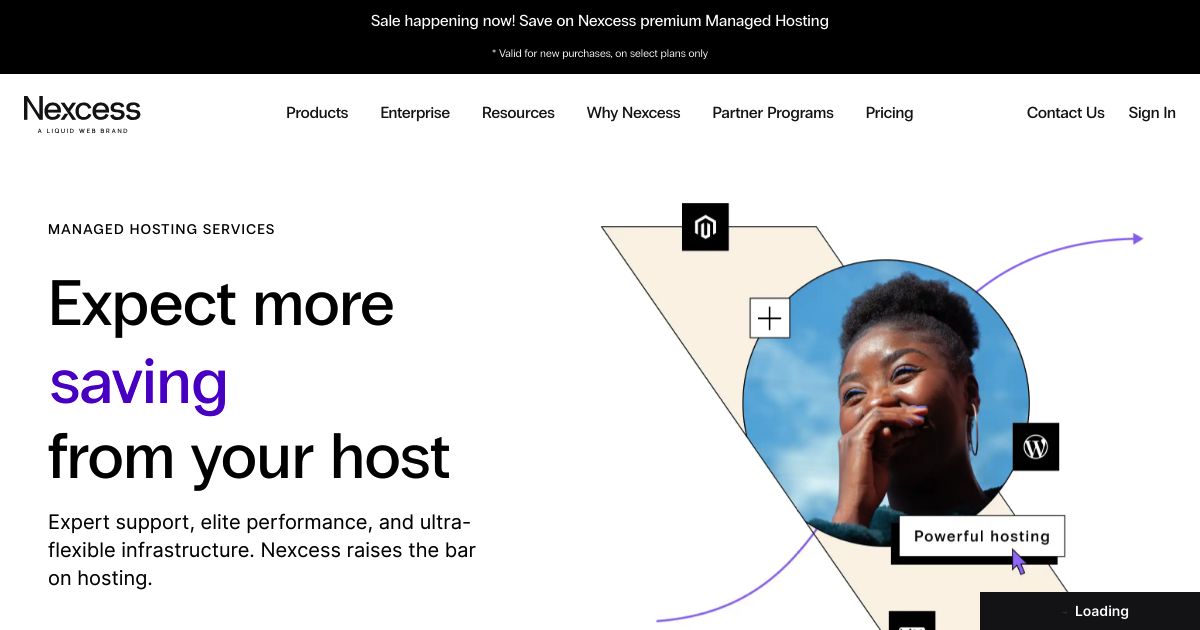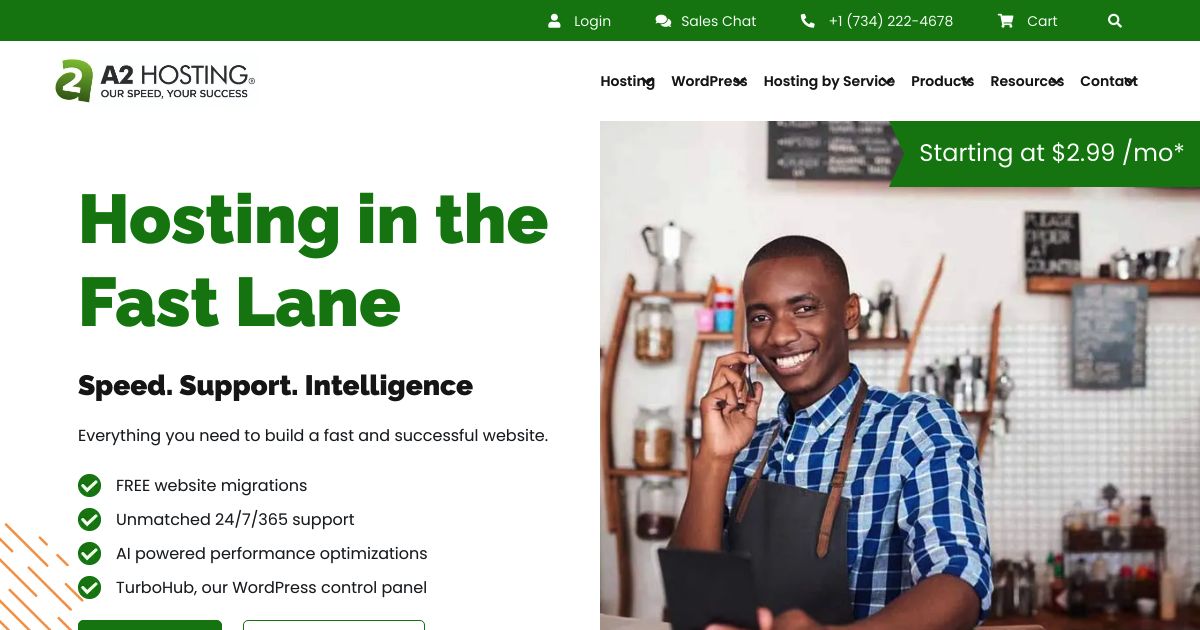BlueHost vs HostGator: In A Glance
BlueHost vs HostGator are two sides of the same coin. Although originating independently, both of these service providers are now nestled under the Endurance International Group (EIG) banner. While the devil is as usual in the detail, this comparison comes a lot closer than most.
[ninja_tables id=”4569″]
1. Company Background

[fonticon icon=”fa-globe”/] Website: https://www.bluehost.com/
BlueHost first came to be in 2003 but was acquired by Endurance International Group (EIG) in 2010. Shortly after, founder Matt Heaton stepped down as CEO. Since then it has expanded services to include VPS and dedicated server offerings.
More details in our BlueHost review.
[show_hostscore brand=”bluehost” /]
[btn text=”Visit Bluehost” url=”/go/bluehost”]

[fonticon icon=”fa-globe”/] Website: https://www.hostgator.com/
HostGator has been in the market for more than two decades now. From a single-owner operation it has today come under the purview of one of the largest forces in web hosting – EIG. Still, the characteristic friendly Gator has remained and today offers a wide range of web hosting options.
More details in our HostGator review.
[show_hostscore brand=”hostgator” /]
[btn text=”Visit HostGator” url=”/go/hostgator”]
2. Performance
With a casual look at their server performance graphs, one might not be wrong in thinking the speeds of these two hosts are closely matched. However, if you dig a little deeper you will observe that BlueHost does offer a more consistent quality of performance throughout.
2a – Response Speed
[response_chart brand=”bluehost” type=”shared” title=”BlueHost” id=”bluehost-1″/]
Over the past 30 days, the average BlueHost web server response speed shown above puts them firmly in the list of top-performing web hosts, especially when it comes to shared hosting.
It should be noted though that there is a comparatively wider margin of performance numbers depending on what location you are approaching the test from. This may affect your choice depending on your targeted traffic location.
[response_chart brand=”hostgator” type=”shared” title=”HostGator” id=”hostgator-1″/]
Although HostGator shows a much tighter spread of variation based on location, it’s average speed is weighed down by greater inconsistency in performance. Occasional lag spikes skew the curve slightly.
While this might be annoying for site owners, it does mean that overall you can expect better quality of service for a wider audience location spread.If you are looking to differentiate these two providers by speed, it will be necessary to know your website needs.
For those targeting an international audience, HostGator would be a better choice. For US-centric traffic, either will do. For greater consistency in performance, BlueHost has that slight edge.
2b – Server Uptime
Uptime is important not only to ensure you retain your brand reputation, but for many other reasons. The accessibility of your site contributes to your revenue. Depending on traffic volume, a small amount of uptime can translate into significant loss.
[uptime_chart brand=”bluehost” type=”shared” title=”Bluehost” id=”bluehost-2″/]
[uptime_chart brand=”hostgator” type=”shared” title=”HostGator” id=”hostgator-2″/]
Over a 30-day observation period, both BlueHost and HostGator have shown remarkable resilience. 100% uptime isn’t easy to achieve and yet both these brands have managed to hit the target.
Verdict: Draw
3. Customer Support
For those who have not owned a website before, customer support is something that isn’t important until you need it. When you do, every minute their team takes to get back to you will feel like an eternity.
3a – Bluehost Support
I’m sorry to hear about your recent experience. If you could please DM us with your domain name we would be more than happy to look into this for you
— Bluehost Support (@bluehostsupport) July 17, 2020
Hey Sarah, can you send us a DM?
— Bluehost Support (@bluehostsupport) July 21, 2020
BlueHost hasn’t always had the greatest customer support but over time they seem to have made significant improvements. One worrying point that remains though is that EIG (their owner) doesn’t have the best track record of helping their customers out.
You can get help on BlueHost via multiple channels including a Knowledgebase, Live Chat, Phone, and Ticketing System.
3b – HostGator Support
Ethan, have you tried from a different connection, such as your mobile phone, not connected to the wi-fi, connected to the mobile network? – Tia
— HostGator Support (@HGSupport) July 18, 2020
Hi Begin, Just a quick follow up to let you know we have located and escalated the Case related to this issue. You can disregard our request for the Case ID. You will be getting an email soon from the Administration Team.
— HostGator Support (@HGSupport) July 21, 2020
-Tommy
HostGator on the other hand does have great customer support – something which does not appear to have changed. Their first line self help knowledgebase is especially comprehensive and can be a source of comfort for frantic site owners.
Customer support on HostGator is available via Knowledgebase, Live Chat, Phone, or their Ticketing System.
Verdict: HostGator Wins
4. Resources and Features
Surprisingly, there is almost no difference in terms of key feature sets when it comes to these two hosts.
Both offer unmetered bandwidth, although in general BlueHost does offer more storage space for users. They also come with many standard features like free website builder, easy web application installer, SSD storage drives, free SSL, and more.
What’s more important is the distinction in a few areas which might influence your choice.
Let’s look at what each has that the other omits:
BlueHost
- Free domain name
- Limited free site migrations
- Offers AutoSSL
- Use of the Weebly website builder
HostGator
- Free site migration (including inter-server moves)
- Let’s Encrypt Wildcard SSLs
- Automated daily backups
- More developer-friendly tools
The differences between the plans on these two hosts aren’t excessive. If you really need to make a choice here it will depend very much on the nature of your site and in fact, personal preference.
Verdict: Draw
5. Specialized Hosting Plans
While both of these hosts offer specialized WordPress hosting plans, it should be noted that BlueHost has the better reputation in this. As I mentioned earlier, they are one of only three service providers to gain the recommendation of WordPress.org.
BlueHost also has pre-built eCommerce hosting plans. Although technically you could do the same with HostGator, the plans on BlueHost have the advantage of coming with included secure payment gateways.
Personally, I feel that these are the only two key areas in specialized hosting from these providers that need special mention.
While not a hosting plan, I also feel the need to mention a service available on BlueHost that HostGator does not have. BlueHost offers customers website building services, inclusive of SEO. While this may cost extra, it is an option if you’re running a business and need a convenient place to outsource your website building to.
Verdict: BlueHost Wins
6. Plans and Pricing
6a – Shared Hosting
[plan_and_pricing brand=”bluehost” type=”shared” title=”BlueHost Shared Plans”/]
[plan_and_pricing brand=”hostgator” type=”shared” title=”HostGator Shared Plans”/]
6b – VPS Hosting
[plan_and_pricing brand=”bluehost” type=”vps” title=”BlueHost VPS Plans”/]
[plan_and_pricing brand=”hostgator” type=”vps” title=”Hostgator VPS Plans”/]
Even in the range of plans available, both BlueHost and HostGator seem determined to stretch neck and neck. However, prices on BlueHost escalate quickly once you pass the entry level barrier.
This makes HostGator a much more competitive choice across the board when it comes to pricing. Of course, higher prices often reflect a bigger pool of resources, so again – it depends on what you need.
Verdict: HostGator Wins
Conclusion: Who are These Hosts Suitable For?
With a close competition in both performance and features, much of the choice now boils down to utility. What your site is intended to do and where you plan for it to go will play a major part in your choice.
If I had to recommend audiences for these two hosts, it would be along the lines of;
HostGator is recommended for…
Those who are planning to build and grow their sites more significantly. Newbies are also encouraged to look here first.
For the unambitious, HostGator is an excellent choice as there is little difference across their shared plans. That does mean however that you may be forced to transition to VPS unexpectedly quickly (and earlier than intended) if for some reason your site traffic explodes.
BlueHost is Recommended for…
Basic website owners who are looking for something cost-effective yet stable.
For newbies or the non-technical folks among us, I highly recommend BlueHost. Their WordPress recognition plus the inclusion of the Weebly site builder give them a major advantage to newer users.
While normally there’s a clear line to be drawn, comparing BlueHost and HostGator really isn’t overly useful head to head. Too much depends on the use case of your site and your intentions.



